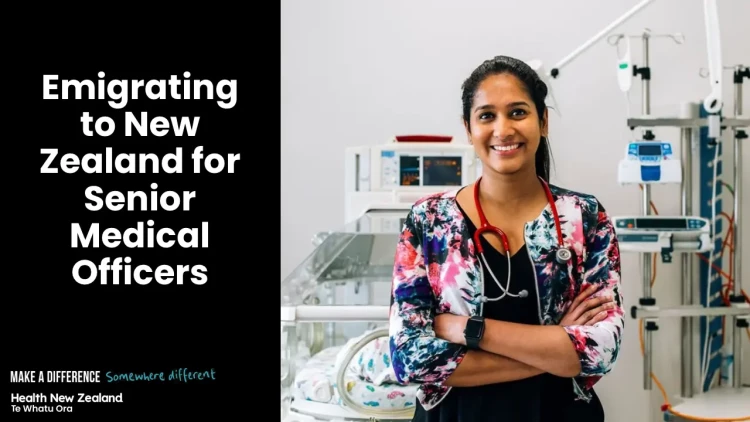- About Health New Zealand
- Locations
- Allied Health
- Midwifery & Nursing
-
Medical Officers
- All Senior Medical Officers (SMOs)
- Anaesthetists
- Dermatologists
- Emergency Medicine Specialists
- GPs & Rural Hospital Doctors
- General Medicine
- Obstetricians & Gynaecologists
- Oncologists
- Paediatricians
- Pain Medicine Specialists
- Pathologists
- Psychiatrists
- Radiologists
- Surgical Specialities
- Resident Medical Officers (RMOs)
- Specialist Teams

General Medicine Physicians
General Medicine in New Zealand focuses on the comprehensive diagnosis, treatment, and ongoing management of adult patients with complex or multisystem conditions. It plays a central role in hospital care across all district sizes—from large tertiary centres to regional and rural hospitals.
General Physicians often provide broad-based internal medicine care and work closely with subspecialists or practise in dual roles, managing both general medical admissions and care within a particular subspecialty.
Also known as: General Medicine Specialists/Consultants, Internal Medicine Specialists/Consultants, Attending Physician
Photo location: Matakana, North Auckland - Credit: Miles Holden
General Medicine in New Zealand
General Medicine is a core component of medical services in New Zealand hospitals.
It is practised across all hospital sizes, including tertiary, regional, and rural settings.
Key features of General Medicine practice in New Zealand:
-
Senior Medical Officers (SMOs) often hold dual roles, working in general medicine and a medical subspecialty
-
General medicine rosters are a standard part of many internal medicine roles
-
Services are consultant-led, with SMOs supervising registrars and house officers
-
General Physicians are essential for managing undifferentiated and complex cases, especially in settings with broad medical service needs
This generalist approach supports flexible, sustainable medical care across the country. Internal medicine specialties are structured differently depending on the hospital’s size, location, and service design.
Specialty Practising Patterns
In many hospitals, specialties are integrated with General Medicine; in others, they may function as standalone services.
Commonly practised alongside general medicine:
-
Respiratory Medicine
-
Endocrinology
-
Infectious Diseases
-
Gastroenterology (in some hospitals)
-
Renal Medicine (in some hospitals)
More commonly practised as standalone specialties:
-
Neurology
-
Rheumatology
-
Cardiology
These patterns vary between larger tertiary centres and smaller regional or rural hospitals, where generalist skill sets are often essential.
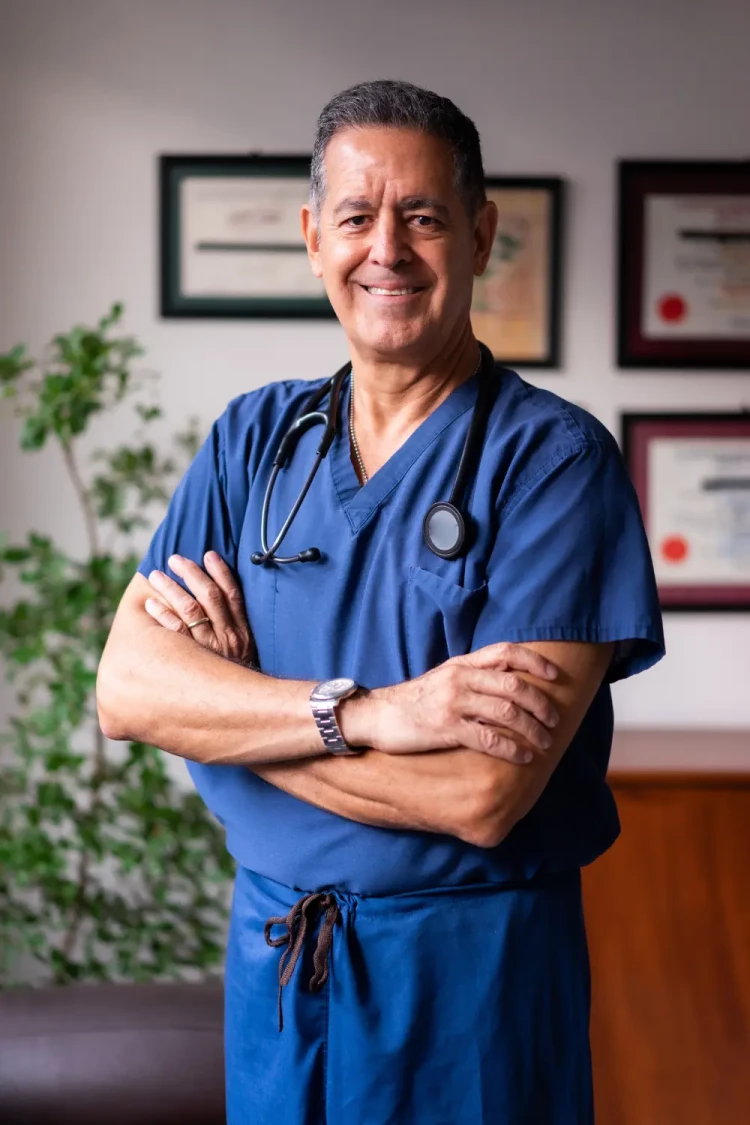
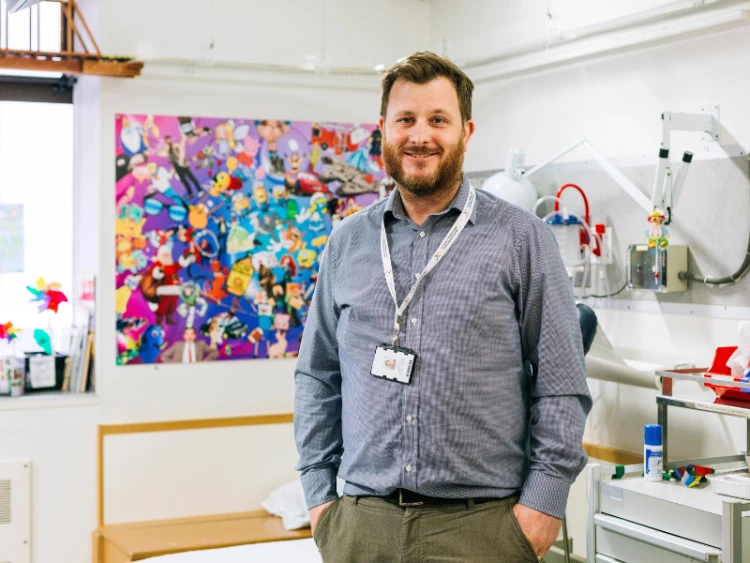
About the role
General Physicians in New Zealand are specialists who provide comprehensive, non-surgical care for adult patients with a wide range of acute and chronic medical conditions affecting internal organs. They are trained to manage complex, multisystem diseases and often care for patients with multiple coexisting conditions.
The role involves:
-
Diagnosing and treating a broad spectrum of internal medical conditions
-
Coordinating long-term care across different specialties
-
Managing both acute presentations and chronic diseases
-
Working closely with multidisciplinary teams to provide integrated care
General Physicians primarily work in Health New Zealand hospitals and play a key role in both inpatient and outpatient settings.
Salary, leave & benefits
Salary:
Senior Medical Officers receive a base salary relative to their level of experience. This is agreed upon at the time of the job offer. There is a 15-step pay scale that SMOs continue to progress through on a yearly basis.
In New Zealand, the salaries and benefits of some roles are determined by collective agreements between unions and employers. The full Senior Medical Officers collective agreement can be found on the Health New Zealand - Te Whatu Ora website here.
Additional allowances are paid on top of base salary and vary due to location and service, and are often not specified in the collective agreement.
Allowances:
There is a range of additional allowances for:
-
on-call,
-
evening, night and weekend work,
-
call back,
-
job size,
-
recruitment and retention,
-
and special contribution.
Leave:
-
6 weeks of paid annual leave.
-
A minimum of 10 days of sick leave per year.
-
10 days of paid Continuing Medical Education Leave (CME), plus the ability to use annual leave tacked onto the end of your CME travel.
-
6-12 months of parental leave, depending on the length of service, including 6 weeks of fully paid parental leave.
-
12 paid public holidays + time in lieu/alternative holiday if rostered on.
-
Long service leave + sabbatical opportunities.
Additional benefits include:
-
An annual Continuing Medical Education (CME) allowance of NZD $16,000 (pro-rated for part-time employees).
-
Membership subscriptions of medical professional bodies are reimbursed by Health New Zealand.
-
Your professional indemnity insurance is covered by Health NZ.
-
If eligible, up to a 6% matching superannuation contribution from Health New Zealand as your employer. Find out more here.
-
A relocation package for international candidates.
Leadership and career development opportunities:
Health New Zealand encourages Senior Medical Officers to be involved in the design, implementation and performance of facilities and technology involved in the delivery of healthcare services to ensure an effective, efficient and safe workplace.
Specific opportunities vary by location and service; however, they can include:
-
Support and encouragement for research and publications.
-
Mentorship opportunities for apprentice Junior Doctors/Registrars.
-
Regional and National networks allow for subspeciality research and practice.
-
Ongoing development and support for career growth with on-the-job coaching and a variety of in-house training programmes.
Required qualifications & experience
To work as an General Physician in New Zealand, the following qualifications, training, and registration requirements apply:
Medical qualification:
Hold a Bachelor of Medicine and Bachelor of Surgery (MBChB) or an equivalent overseas qualification recognised by the Medical Council of New Zealand (MCNZ).
Internal medicine specialist training:
Complete a structured vocational training programme in internal medicine accredited by the Royal Australasian College of Physicians (RACP), which includes:
-
Basic Training: A minimum of three years of supervised clinical experience and rotations across various medical specialties, including regular assessments and completion of the RACP Written and Clinical Examinations.
-
Advanced Training: A further three years in general medicine or a recognised internal medicine subspecialty (e.g. cardiology, respiratory, endocrinology), with additional supervision, assessments, and evidence of competence in complex case management and professional development.
Experience:
Gain extensive clinical experience during training, including managing patients with complex and multisystem conditions. Many specialists also undertake fellowships or research to develop additional expertise.
Registration with the Medical Council of New Zealand (MCNZ):
Obtain vocational registration in internal medicine with the MCNZ. This typically requires:
-
Completion of the full RACP training programme and award of Fellowship (FRACP).
-
For international medical graduates: your qualifications, training, and experience are assessed by the MCNZ to determine comparability to the New Zealand standard. Additional requirements may include examinations, a period of supervised practice, or assessment through a recognised pathway.
Language requirements (for international applicants):
If trained outside of New Zealand, Australia, the UK, Ireland, Canada or the USA, you must demonstrate English language proficiency. This is usually met by achieving the required scores in the IELTS or OET examinations.
Annual Practising Certificate (APC):
Maintain a current APC issued by the MCNZ, which must be renewed annually.
To retain your APC, you must:
-
Provide evidence of ongoing competence in internal medicine.
-
Participate in Continuing Professional Development (CPD) activities in line with RACP and MCNZ requirements, including peer review, clinical audits, and regular education.
Information for international candidates
Registering to work as an Internal Medicine Specialist in New Zealand:
To work as an Internal Medicine Specialist in New Zealand you will need to obtain Vocational Registration with the Medical Council of New Zealand (MCNZ).
Pathways to Vocational Registration include:
1. Direct pathway to Vocational Registration:
-
If you are an International Medical Graduate (IMG) with specialist qualifications from countries with medical systems deemed equivalent to New Zealand’s (e.g., Australia, the UK, the USA, Canada, or some European countries), you may be eligible to apply directly for vocational registration without needing first to obtain general registration.
-
In this pathway, the Medical Council of New Zealand (MCNZ) will assess your specialist qualifications, clinical experience, and the medical system where you trained. If these are deemed equivalent, you can apply directly for vocational registration in your specialty (such as Emergency Medicine).
-
This pathway allows experienced specialists to bypass general registration and the provisional general phase, which is typically required for doctors without a recognised specialist qualification.
2. Provisional Vocational Registration pathway
-
If the MCNZ determines that your qualifications and experience are largely equivalent but that you need some orientation or assessment within the New Zealand healthcare system, you may be granted provisional vocational registration.
-
This means you’ll practice in your specialty under supervision for a period, typically between 6-12 months, before being granted full vocational registration.
-
During this provisional Vocational Registration period, a specialist who practises in the same area of medicine as you will supervise you.
3. General registration pathway
-
Some IMGs who do not meet the criteria for direct vocational registration may first need to obtain general registration if their qualifications and experience are not recognized as equivalent.
-
This process to gain Vocational Registration includes:
-
A period of Provisional General Registration (with supervised practice) if necessary.
-
After obtaining General Registration, they can later apply for Vocational Registration once they have completed any further assessments or additional supervised practice required by the MCNZ.
-
Take the self-assessment
The Medical Council of New Zealand have a self-assessment tool to help you easily determine which registration pathway you should take.
Use the Medical Council's self-assessment tool
Find out more about life in New Zealand
We have a page dedicated to providing information to candidates about our recruitment process, what you need to work in New Zealand and key details about moving here.
Apply for a General Medicine role
Domestically Trained Candidates
If you trained in New Zealand or Australia, search current vacancies with our districts to apply for here:
Internationally Trained Candidates
If you trained outside of New Zealand or Australia, register through our International Recruitment Centre here:
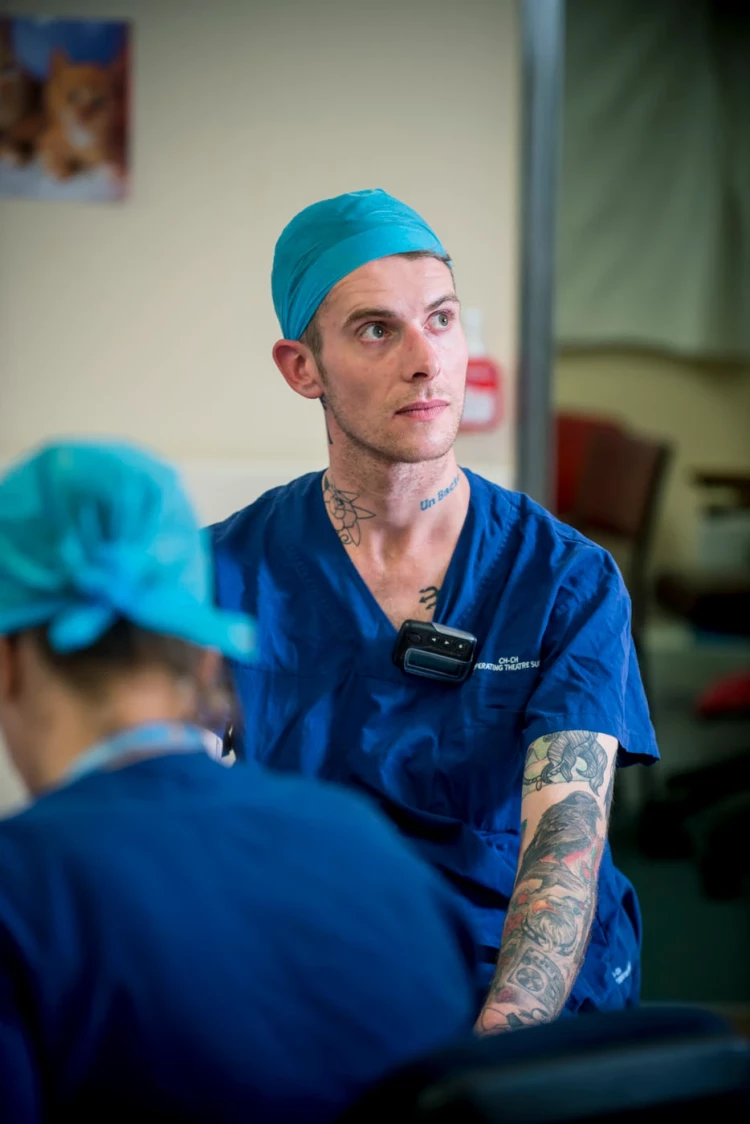
Specialties
Below is a list of the Internal Medicine specialties practised in New Zealand.
These are often practised in combination with General Medicine, particularly outside of major metropolitan hospitals.
Click each icon below to find out more.
General Medicine Specialists
General Medicine Specialists (General Physicians) diagnose and manage a wide range of adult medical conditions, including chronic diseases, infections, and multi-system disorders. They collaborate with patients to develop personalised treatment plans that may include medications, lifestyle changes, and referrals to other specialists.
Internal medicine specialists typically work in hospitals, clinics, and community health centres. Health New Zealand provides state-of-the-art facilities and a supportive, team-based environment focused on patient-centred care. Responsibilities may include:
-
Diagnosis: Use clinical assessments, laboratory tests, imaging, and patient history to diagnose complex medical conditions.
-
Treatment Planning: Develop individualised management plans, including medications, lifestyle modifications, and coordination with other healthcare providers.
-
Comprehensive Care: Provide long-term care for patients with chronic conditions such as diabetes, hypertension, and cardiovascular diseases.
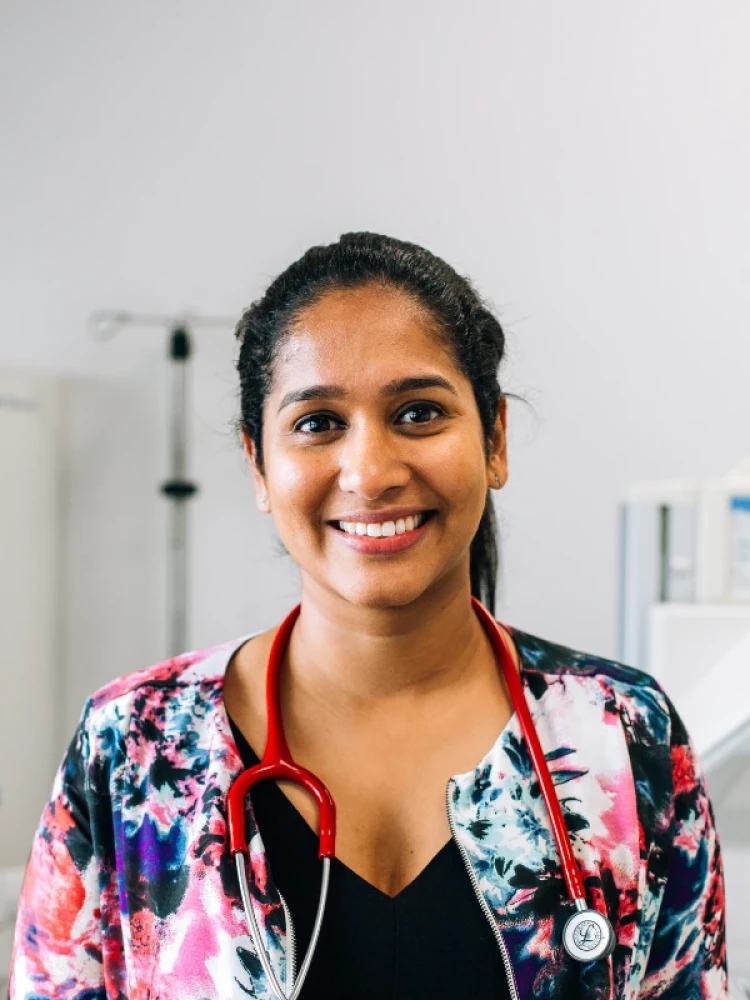

Cardiologists
Cardiologists specialise in diagnosing and treating heart conditions, such as coronary artery disease, arrhythmias, heart failure, and hypertension. They work closely with a multidisciplinary team to develop personalised treatment plans that may include medications, lifestyle changes, or surgical interventions.
Clinical Immunologists
Clinical Immunologists specialise in diagnosing and treating immune system disorders, such as autoimmune diseases, allergies, immunodeficiencies, and inflammatory conditions. They collaborate with patients to develop personalised treatment plans that may include medications, immunotherapy, and lifestyle modifications.
Clinical immunologists typically work in hospitals, clinics, and research institutions. Health New Zealand provides state-of-the-art facilities and a supportive, team-based environment focused on patient-centred care. Responsibilities may include:
-
Diagnosis: Use diagnostic tools like blood tests, skin tests, and imaging to assess immune function and identify disorders.
-
Treatment Planning: Develop individualised treatment plans, including medications, immunotherapy, or lifestyle changes.
-
Therapeutic Interventions: Administer treatments such as intravenous immunoglobulin therapy or recommend immunomodulatory drugs for chronic immune conditions.


Clinical Pharmacologists
Clinical Pharmacologists specialise in the safe and effective use of medications, focusing on drug interactions, pharmacokinetics, and optimising treatment outcomes. They collaborate with patients and healthcare teams to develop personalised medication plans that improve efficacy while minimising risks.
Clinical pharmacologists typically work in hospitals, clinics, and research institutions. Responsibilities may include:
-
Diagnosis: Assess patient history and medication use to identify potential drug interactions, side effects, and contraindications.
-
Treatment Planning: Develop individualised medication plans, adjusting dosages or recommending alternative treatments to improve outcomes.
-
Clinical Guidance: Provide expert advice to healthcare professionals on prescribing, drug safety, and emerging pharmacological treatments.
-
Collaboration: Work closely with doctors, nurses, and other specialists to ensure safe and effective medication management for patients.
Endocrinologists
Endocrinologists specialise in diagnosing and treating hormone-related disorders, such as diabetes, thyroid diseases, adrenal conditions, and osteoporosis. They collaborate with patients to develop personalised treatment plans that may include medications, hormone therapy, and lifestyle modifications.
Endocrinologists typically work in hospitals, clinics, and research institutions. Responsibilities may include:
-
Diagnosis: Use blood tests, imaging, and hormone level assessments to identify endocrine disorders.
-
Treatment Planning: Develop individualised management plans, including medications, hormone replacement therapy, and lifestyle changes.
-
Patient Management: Monitor long-term conditions such as diabetes and metabolic disorders, adjusting treatment as needed.
-
Collaboration: Work closely with general practitioners, dietitians, surgeons, and other specialists to ensure comprehensive care for patients with complex hormonal conditions.


Gastroenterologists
Gastroenterologists specialise in diagnosing and treating disorders of the digestive system, including conditions affecting the oesophagus, stomach, intestines, liver, pancreas, and gallbladder. They collaborate with patients to develop personalised treatment plans that may include medications, dietary modifications, endoscopic procedures, or surgical referrals.
Gastroenterologists typically work in hospitals, clinics, and research institutions. Responsibilities may include:
-
Diagnosis: Use endoscopy, colonoscopy, imaging, and laboratory tests to assess and diagnose digestive disorders.
-
Treatment Planning: Develop individualised management plans, including medications, dietary recommendations, or interventional procedures.
-
Procedures: Perform diagnostic and therapeutic procedures such as endoscopies, biopsies, and polyp removal.
-
Collaboration: Work closely with general practitioners, dietitians, surgeons, and other specialists to provide comprehensive care for patients with complex gastrointestinal conditions.
Geriatric Medicine
Geriatricians specialise in diagnosing and managing health conditions affecting older adults, such as dementia, frailty, osteoporosis, and multiple chronic diseases. They collaborate with patients and their families to develop personalised care plans that focus on improving quality of life, maintaining independence, and managing complex health needs.
Geriatricians typically work in hospitals, aged care facilities, and community health services. Responsibilities may include:
-
Diagnosis: Assess cognitive function, mobility, and overall health to identify age-related conditions and complex comorbidities.
-
Treatment Planning: Develop individualised care plans, including medication management, rehabilitation, and lifestyle modifications.
-
Comprehensive Care: Address physical, cognitive, and social aspects of ageing, including fall prevention and palliative care.
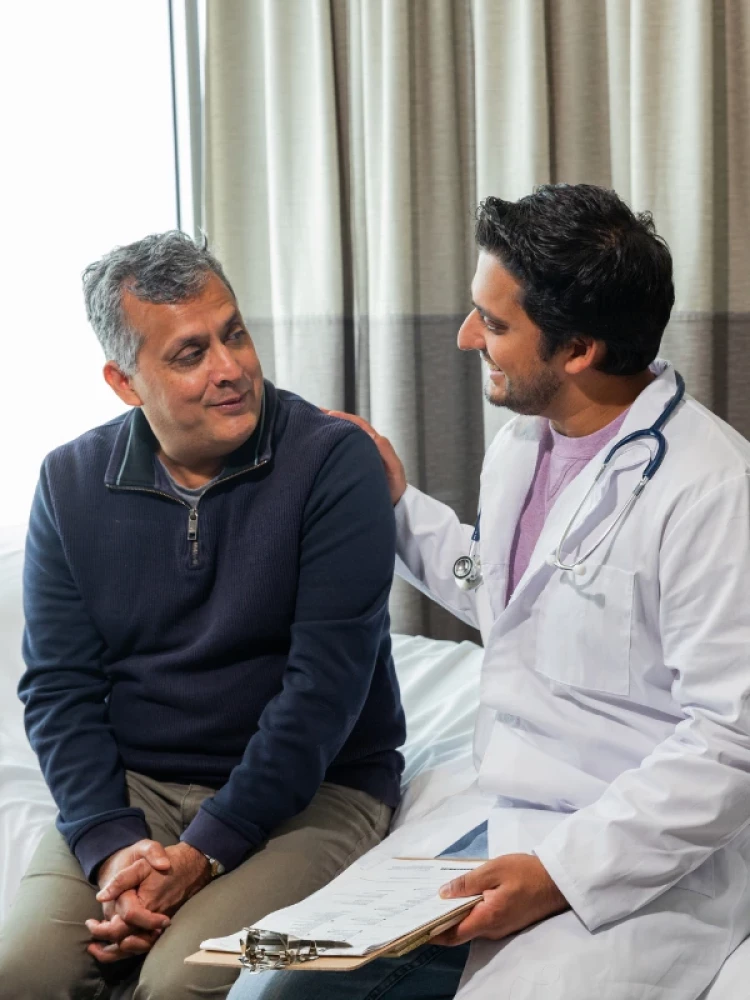

Haematologists
Haematologists specialise in diagnosing and treating disorders of the blood and bone marrow, including anaemia, clotting disorders, leukaemia, lymphoma, and other haematological malignancies. They collaborate with patients to develop personalised treatment plans that may include medications, blood transfusions, chemotherapy, or stem cell transplantation.
Haematologists typically work in hospitals, specialist clinics, and research institutions. Responsibilities may include:
-
Diagnosis: Use blood tests, bone marrow biopsies, and genetic analysis to assess and diagnose haematological conditions.
-
Treatment Planning: Develop individualised management plans, including medications, transfusions, or targeted therapies.
-
Therapeutic Interventions: Administer treatments such as chemotherapy, immunotherapy, and stem cell transplantation for blood disorders and cancers.
Infectious disease specialists
Infectious disease specialists diagnose and manage infections caused by bacteria, viruses, fungi, and parasites, including conditions such as tuberculosis, HIV, sepsis, and emerging infectious diseases. They collaborate with patients to develop personalised treatment plans that may include antimicrobial therapy, infection control measures, and vaccination strategies.
Infectious disease specialists typically work in hospitals, public health units, and research institutions. Responsibilities may include:
-
Diagnosis: Use blood tests, imaging, and microbiological analysis to identify infectious agents and assess disease severity.
-
Treatment Planning: Develop individualised management plans, including antimicrobial therapies, immunisation, and infection prevention strategies.
-
Outbreak Management: Provide expertise in controlling hospital-acquired infections and managing public health responses to infectious disease outbreaks.


Medical Oncologists
Medical oncologists specialise in diagnosing and treating cancer, including solid tumours and haematological malignancies.
They work closely with patients to develop personalised treatment plans that may include chemotherapy, immunotherapy, targeted therapy, or hormone therapy.
Nephrologists
Nephrologists specialise in diagnosing and treating kidney-related conditions, including chronic kidney disease, hypertension, kidney stones, and renal failure. They collaborate with patients to develop personalised treatment plans that may include medications, dialysis, or kidney transplantation.
Nephrologists typically work in hospitals, specialist clinics, and research institutions. Health New Zealand provides state-of-the-art facilities and a supportive, team-based environment focused on patient-centred care. Responsibilities may include:
-
Diagnosis: Use blood tests, urine analysis, imaging, and kidney biopsies to assess kidney function and identify disorders.
-
Treatment Planning: Develop individualised management plans, including medications, dietary modifications, and dialysis therapy.
-
Renal Support: Oversee dialysis treatments and provide pre-and post-transplant care for kidney transplant patients.


Neurologists
Neurologists specialise in diagnosing and treating disorders of the nervous system, including stroke, epilepsy, multiple sclerosis, Parkinson’s disease, and neuropathies. They collaborate with patients to develop personalised treatment plans that may include medications, rehabilitation, and lifestyle modifications.
Neurologists typically work in hospitals, specialist clinics, and research institutions. Responsibilities may include:
-
Diagnosis: Use clinical assessments, imaging (MRI, CT), and electrophysiological tests (EEG, EMG) to evaluate neurological conditions.
-
Treatment Planning: Develop individualised management plans, including medications, physiotherapy, and surgical referrals when necessary.
-
Ongoing Care: Manage chronic neurological conditions and provide long-term support for patients with progressive disorders.
Nuclear Medicine Specialists
Nuclear medicine specialists use radioactive substances to diagnose and treat a variety of conditions, including cancers, cardiovascular diseases, and neurological disorders. They collaborate with patients to develop personalised treatment plans that may include imaging, therapy, and monitoring of radioactive treatments.
Nuclear medicine specialists typically work in hospitals, diagnostic imaging centres, and research institutions. Responsibilities may include:
-
Diagnosis: Use nuclear imaging techniques, such as PET, SPECT, and scintigraphy, to assess organ function and identify diseases.
-
Treatment Planning: Develop individualised treatment plans, including radioactive therapy for conditions like cancer or thyroid disorders.
-
Therapeutic Interventions: Administer targeted radionuclide therapies to treat cancers, hyperthyroidism, and other conditions.
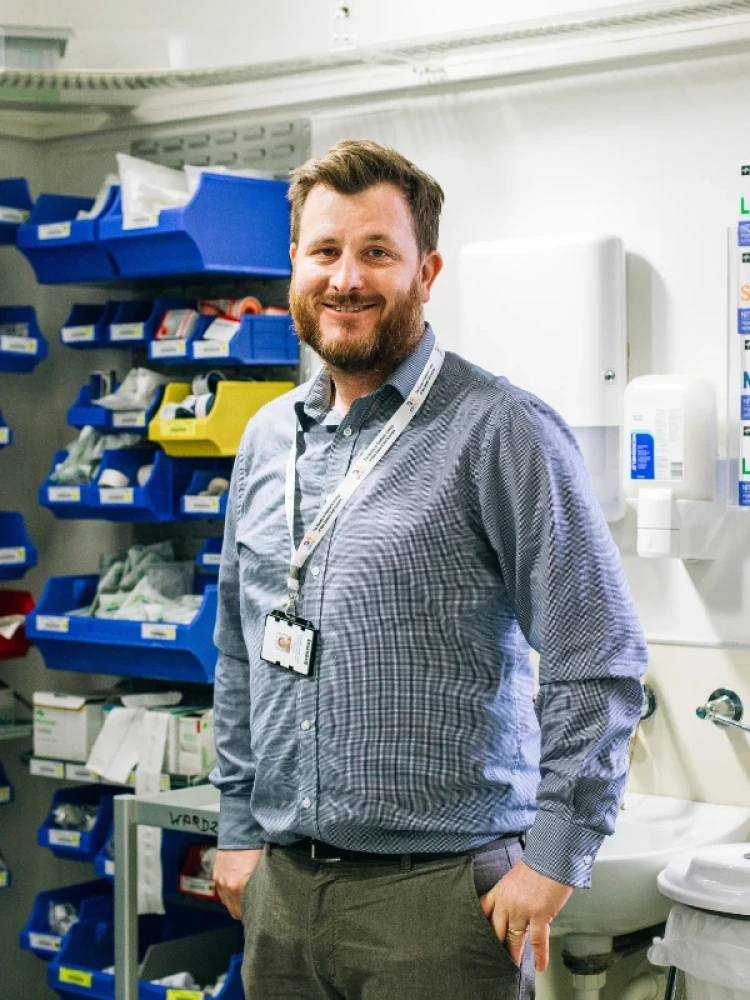
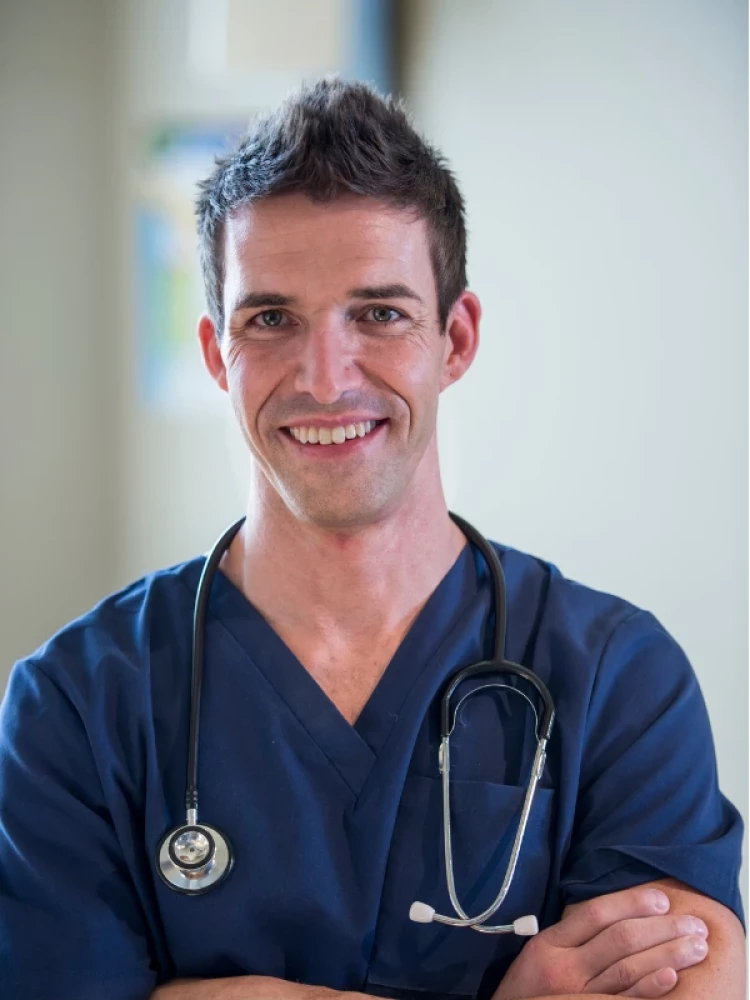
Palliative Medicine Specialists
Palliative medicine specialists focus on providing relief from the symptoms, pain, and stress of serious illnesses, such as cancer, heart failure, and neurodegenerative diseases. They collaborate with patients and their families to develop personalised care plans that aim to improve quality of life and support emotional, psychological, and spiritual well-being.
Palliative medicine specialists typically work in hospitals, hospices, and community health settings. Responsibilities may include:
-
Symptom Management: Use medications, therapies, and non-pharmacological approaches to alleviate pain and control symptoms like nausea and breathlessness.
-
Care Planning: Develop individualised care plans that include end-of-life care, advance care planning, and coordination with other healthcare providers.
-
Emotional and Psychological Support: Provide counselling and support to patients and their families, addressing concerns around dying, grief, and decision-making.
Respiratory Medicine Specialists
Respiratory medicine specialists diagnose and treat diseases of the lungs and respiratory system, including asthma, chronic obstructive pulmonary disease (COPD), pneumonia, and sleep apnoea. They collaborate with patients to develop personalised treatment plans that may include medications, pulmonary rehabilitation, and lifestyle modifications.
Respiratory medicine specialists typically work in hospitals, specialist clinics, and research institutions. Responsibilities may include:
-
Diagnosis: Use tests like spirometry, chest X-rays, CT scans, and sleep studies to assess lung function and diagnose respiratory conditions.
-
Treatment Planning: Develop individualised management plans, including inhalers, oxygen therapy, and pulmonary rehabilitation programs.
-
Patient Education: Educate patients on lifestyle changes, such as smoking cessation and exercise, to manage chronic respiratory conditions.

Working at Health New Zealand
'Te Whatu Ora' translates from our indigenous Māori language to 'the weaving of wellness'; which is what we are all about in our holistic delivery of world-class care for the health and wellbeing of the 5 million Kiwis in our communities.
Health New Zealand has an open and non-hierarchical approach to improving outcomes for our patients. Our cross-disciplinary collaborative way of working fosters a positive work environment where all members of our team feel supported and empowered.
Our commitment to you
We are dedicated to building a team that is representative of the communities that we are serving. We are committed to supporting health equity in our communities. Our kaimahi (staff) thrives on the diversity and inclusion of all perspectives and cultures, and we welcome individuals from all backgrounds and lived experiences.
Health New Zealand has programmes and facilities available to both protect and improve our teams’ physical, mental and emotional health and wellbeing. We know that you do your best work when you’re feeling your best, so it’s important to us that this is a priority.
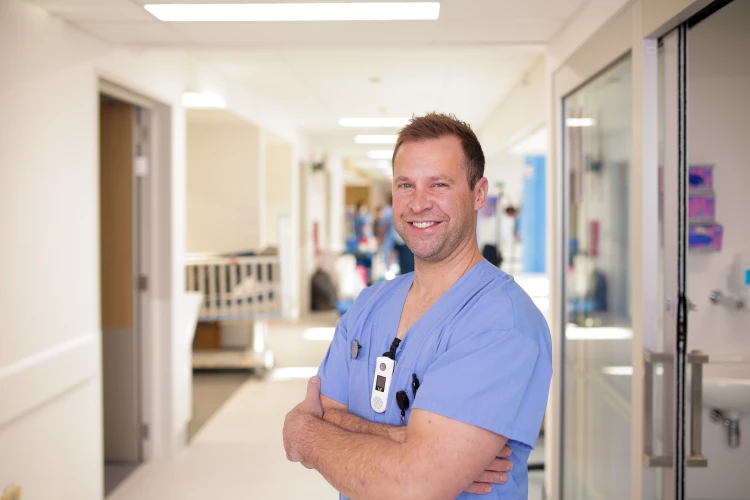
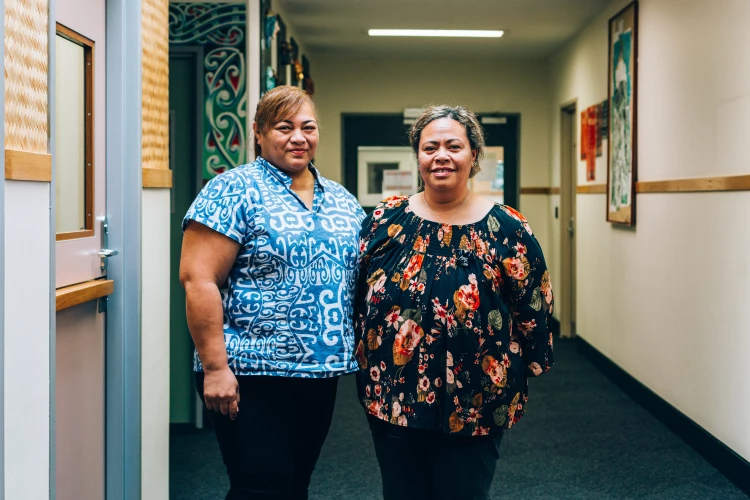
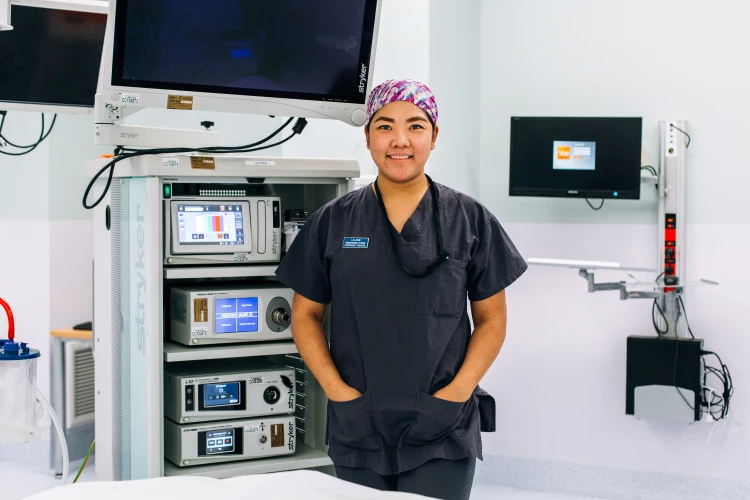
Looking to move to New Zealand to work as a General Medicine Specialist?
Great news! Internal Medicine Specialists (SMOs) are on Tier 1 of New Zealand's Green List, which means you are eligible for a fast-tracked Straight to Residence Visa. This means you and your family can apply for New Zealand residency before you arrive, provided you have a job offer from an accredited employer, like us!
Explore Aotearoa
New Zealand - Aotearoa has been in the top 5 countries in the Global Peace Index every year since it launched in 2009 and has a broad range of places to call home, from the bustling metropolis of our main centres, to the easy-going vibe of our coastal or rural communities.
Find out more information about what part of our beautiful country is the best fit for you.

Te Tai Tokerau Northland
Population: 194,600
Northland is a beautiful and diverse region of Aotearoa, New Zealand with plenty to offer visitors. Whether you're interested in water sports, historic sites, natural beauty or ancient Kauri trees—Northland has it all!

Waitematā
Population: 650,000
Waitematā is the largest and one of the most rapidly growing Districts serving the largest population of all Health New Zealand. Waitematā offers a balanced lifestyle that combines the convenience of city living with the natural beauty and community spirit of suburban life.

Te Toka Tumai Auckland
Population: 500,000
Auckland the "City of Sails" is Aotearoa, New Zealand’s largest city and commercial hub. It’s where metropolitan sophistication meets breathtaking natural beauty. Auckland is filled with a variety of warm and welcoming communities, packed with new places to explore.

Counties Manukau
Population: 500,000
Counties Manukau is a vibrant place where there's never a dull moment! Living and working here ensures you're always close to amenities, events and nature. You'll never run out of places to visit or things to do.

Hauora a Toi Bay of Plenty
Population: 255,110
The Bay of Plenty is a place of beautiful harbours, long surf beaches and an easygoing lifestyle. We showcase the perfect place to explore a wide range of nature-based pursuits – this gives the people of the Bay of Plenty the chance for a better work-life balance.

Waikato
Population: 425,000
The Waikato region is known for its natural beauty, rich Māori culture, and agricultural heritage with something to offer visitors of all interests.

Tairāwhiti Gisborne
Population: 48,000
In family-friendly Tairāwhiti you will experience an easier pace to life that allows you to pause, reflect, and enjoy a true work-life balance. Gisborne’s relative isolation is its charm, surrounded by beaches & nature - don't worry though! Larger cities are only a quick flight away.

Lakes
Population: 110,000
The Lakes District is well known for its geothermal activity and natural hot springs. The area is located in the central North Island and is home to many geothermal attractions, such as geysers, hot mud pools, and steam vents. Visitors can also relax in the region's natural hot springs, which are believed to have healing properties.

Taranaki
Population: 130,000
Taranaki is a magical place with a majestic mountain at its heart, including the rugged coastline that's world-renowned for its surf. Its residents' love of art and culture, cafes and outdoor living mean it's also fantastic to work—and play!

Te Matau a Māui Hawke's Bay
Population: 180,000
Known for its world-class wineries, stunning beaches and temperate climate, Hawke’s Bay boasts a lifestyle that is unmatched. The region is a popular destination for food and wine tourism, hiking, cycling and cultural events such as the annual Art Deco festival.

Whanganui
Population: 65,000
Whanganui has something for everyone. Our centrally located region offers access to outdoor activities such as kayaking, skiing, surfing, tramping, cycling, fishing and hunting. Nestled between two snow-capped mountains, on the banks of Whanganui River there is always plenty to do and explore.

Capital, Coast and Hutt Valley
Population: 445,000
Wellington, the capital city of Aotearoa New Zealand, is a bustling and diverse hub of culture and cosmopolitanism, renowned for its lively cafés, restaurants, and internationally acclaimed sporting and cultural events, all set against the stunning backdrop of a natural harbour. To the north of Wellington lie the regions of Porirua, Kapiti, and Hutt Valley.
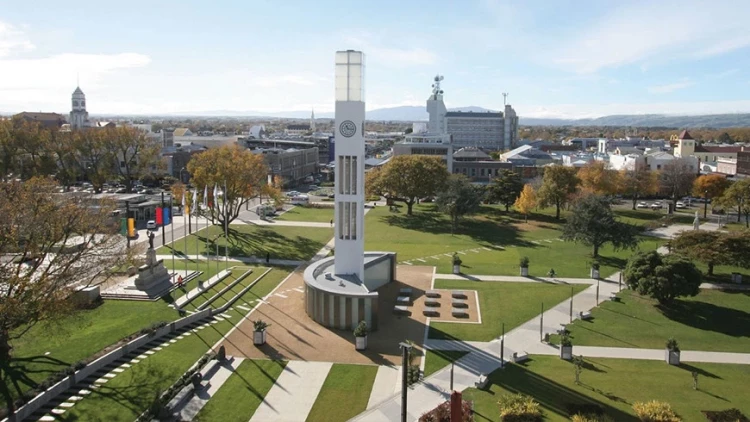
Te Pae Hauora o Ruahine o Tararua MidCentral
Population: 190,000
Get the best of both worlds - the perfect blend of rural and city living with the mountains, city and sea at your fingertips.

Wairarapa
Population: 48,000
From rugged coastlines, boutique vineyards to lush forests, Wairarapa is a slice of paradise for those who love the outdoors and seek a peaceful environment to recharge after a rewarding day's work.
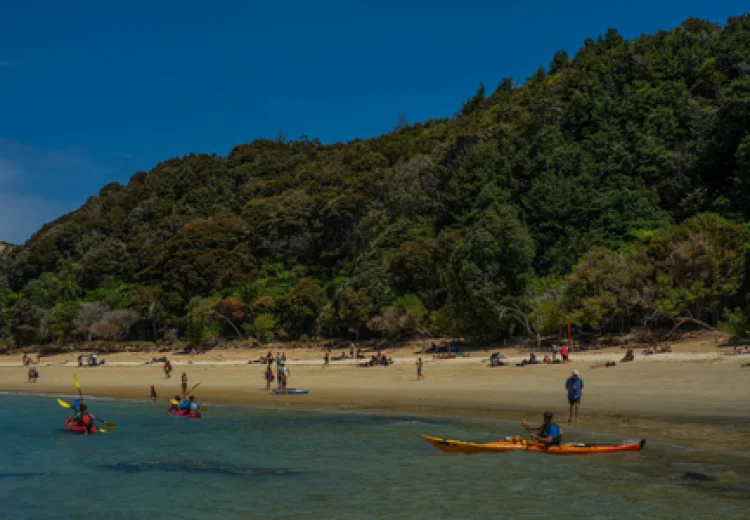
Nelson Marlborough
Population: 150,000
Nelson Marlborough has been dubbed the artistic capital with a thriving urban centre and one of New Zealand's sunniest regions.

Te Tai o Poutini West Coast
Population: 32,000
Te Tai o Poutini/West Coast has views of both the mountain ranges and the ocean! It is an untamed natural wilderness of beautiful rivers and rainforests, glaciers and geological treasures.

Waitaha Canterbury
Population: 600,000
The Canterbury region is a great place to live and work due to its natural beauty, vibrant economy, cultural diversity, strong community, and high quality of life.
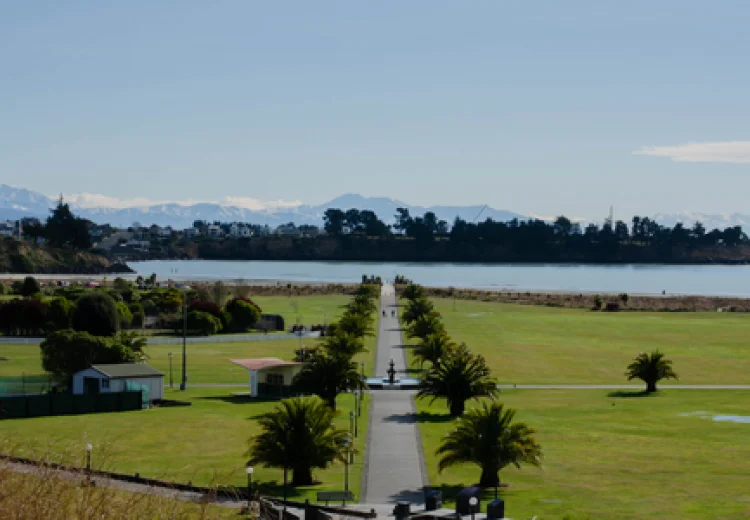
South Canterbury
Population: 62,000
The South Canterbury District is an area of stunning beauty with great lifestyle opportunities, a safe and welcoming family-friendly environment, affordable living, excellent educational opportunities and a wide range of cultural and sporting facilities.

Southern
Population: 350,000
Well known for its beautiful natural scenery, which includes towering mountains, stunning fjords, majestic glaciers, and crystal-clear lakes. The region is also famous for its friendly communities, charming towns, and vibrant cities such as Dunedin and Invercargill.
Webinar: Registration for Senior Medical Officers
Health New Zealand’s Health Immigration Service, Kiwi Health Jobs, Immigration NZ and the Medical Council of New Zealand have run joint webinars to take you through the different steps towards starting a new adventure in New Zealand - Aotearoa.
Learn more about moving to our beautiful country, directly from the people who process your applications.

|
Photo location: Thornton Bay, Coromandel - Credit: Miles Holden |






